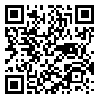Volume 16, Issue 57 (4-2022)
MLJ 2022, 16(57): 170-185 |
Back to browse issues page
Download citation:
BibTeX | RIS | EndNote | Medlars | ProCite | Reference Manager | RefWorks
Send citation to:



BibTeX | RIS | EndNote | Medlars | ProCite | Reference Manager | RefWorks
Send citation to:
Monfared M, Alinezhad A. The Covid-19 Crisis from the Perspective of International Law, with an Emphasis on the International Health Regulations 2005. MLJ 2022; 16 (57) :170-185
URL: http://ijmedicallaw.ir/article-1-1104-en.html
URL: http://ijmedicallaw.ir/article-1-1104-en.html
1- Department of Law and Islamic Education, Faculty of Literature and Humanities, Vali-e Asr University. Rafsanjan, Iran
Abstract:
Background and Aim: The outbreak of Covid-19 was first discovered in December 2019 in Wuhan, China, and affected the world by surprise. As of February 25, 2020, China has reported more than 77.000 cases with more than 2.600 deaths and the number is increasing day by day. Since the same date, about 2.500 cases have also been reported from 33 countries. The outbreak of this acute respiratory disease has raised public health and political questions and challenges for governments and international organizations. By presenting the uncertainties in this regard, this article tries to solve challenges such as the extent of the impact of health regulations in the fight against the spread of Covid-19, the limits of national emergency measures in the fight against the Covid-19 virus and its compliance with the international health regulations of 2005 and on the other hand. Its relationship with human rights considerations, to ensure the proportionality of these measures with the real risk of the spread of this disease, emphasizing the role of the World Health Organization and the 2005 health regulations, should be evaluated legally.
Method: This research was prepared with a descriptive-analytical method, and its data collection was done with a library document tool.
Ethical Considerations: In all stages of writing the present research, while respecting the originality of the texts, honesty and trustworthiness have been observed.
Results: The findings of this research show that although the International Health Regulations 2005 is a legally binding system to protect people from the spread of diseases around the world, there are still serious challenges in the implementation of these regulations, which should be addressed with seriousness and urgency. be checked On the other hand, while the provisions contain relatively clear commitments on cooperation as well as routine health measures, the action of governments in this area shows an inconsistent level of compliance, especially regarding travel and trade restrictions with affected countries. In this regard, before interfering with civil or political rights in the fields of public health, governments must fulfill certain conditions that are closely monitored in terms of international law.
Conclusion: Before interfering with civil or political rights in the fields of public health, governments must fulfill certain conditions that are closely monitored in terms of international law. This is while investigating the actions of governments in the field of Covid-19, including quarantine and isolation, has violated some human rights, including freedom of movement and the right to freedom. Therefore, given the complexity and large number of variables surrounding the outbreak of the Covid-19 virus, it is unrealistic to expect that a flawless system, while enforcing its general and restrictive mandates, will be able to provide flawless solutions in relation to Provide public health. In this regard, countries can strengthen the implementation of the 2005 health regulations by supporting the World Health Organization and supporting each other.
Please cite this article as:
Monfared M, Alinezhad A. The Covid-19 Crisis from the Perspective of International Law, with an Emphasis on the International Health Regulations 2005. Medical Law Journal. 2022; 16(57): e12.
Method: This research was prepared with a descriptive-analytical method, and its data collection was done with a library document tool.
Ethical Considerations: In all stages of writing the present research, while respecting the originality of the texts, honesty and trustworthiness have been observed.
Results: The findings of this research show that although the International Health Regulations 2005 is a legally binding system to protect people from the spread of diseases around the world, there are still serious challenges in the implementation of these regulations, which should be addressed with seriousness and urgency. be checked On the other hand, while the provisions contain relatively clear commitments on cooperation as well as routine health measures, the action of governments in this area shows an inconsistent level of compliance, especially regarding travel and trade restrictions with affected countries. In this regard, before interfering with civil or political rights in the fields of public health, governments must fulfill certain conditions that are closely monitored in terms of international law.
Conclusion: Before interfering with civil or political rights in the fields of public health, governments must fulfill certain conditions that are closely monitored in terms of international law. This is while investigating the actions of governments in the field of Covid-19, including quarantine and isolation, has violated some human rights, including freedom of movement and the right to freedom. Therefore, given the complexity and large number of variables surrounding the outbreak of the Covid-19 virus, it is unrealistic to expect that a flawless system, while enforcing its general and restrictive mandates, will be able to provide flawless solutions in relation to Provide public health. In this regard, countries can strengthen the implementation of the 2005 health regulations by supporting the World Health Organization and supporting each other.
Please cite this article as:
Monfared M, Alinezhad A. The Covid-19 Crisis from the Perspective of International Law, with an Emphasis on the International Health Regulations 2005. Medical Law Journal. 2022; 16(57): e12.
Keywords: Covid-19, World Health Organization, International Health Regulations, Covenant of Civil-Political Rights
Type of Study: Original Article |
Received: 2020/03/16 | Accepted: 2021/01/12
Received: 2020/03/16 | Accepted: 2021/01/12
Send email to the article author
| Rights and permissions | |
 |
This work is licensed under a Creative Commons Attribution-NonCommercial 4.0 International License. |






